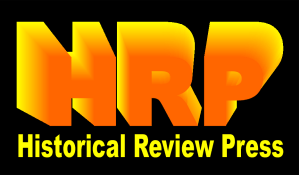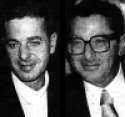
|
Media control and censorship! |
The mind-bending power of the masters of the media
The media-power in Great Britain and elsewhere
The Mind-Benders is an analysis of the media power in Great Britain. Written in 1997, it details how (and why) the information we receive via the media is censored and distorted. If we are to avoid insidious totalitarianism we must be aware of the enormous control over every form of mass media the Jews possess and – in any democratic society under such powerful influences – who are the real manipulators of political power.
Who controls advertising?
The power of the purse is nowhere more apparent than in the field of advertising, whose magnates not only decide what images are used to promote particular products and ideas, but also have a great deal of influence over where vast corporate advertising budgets are spent. Their ability to determine which channels, magazines and newspapers are used – or not used – for major advertising campaigns gives such individuals an immense amount of influence over the producers and editors of supposedly independent media operations.
Companies placing advertisements also have a great deal of ‘clout’ over the media. There have been a number of instances when the big High Street retail chains – another area dominated by Jews, but outside the scope of this survey – has been used to persuade Gentile newspaper owners and editors to toe the line. As far back as the 1930s, for example, the threat of a Jewish advertising boycott forced Lord Rothermere to stop printing articles supporting Sir Oswald Mosley in his Daily Mail. More recently, similar threats have been brought to bear against a medical magazine for carrying articles critical of Israeli treatment of Palestinians, and against the Sunday Times, which was persuaded to break its contract with historian David Irving to translate its Goebbels Diaries extracts.
In Japan the popular magazine Marco Polo was forced to close down by an international advertising boycott organised by Zionists, after carrying an article pointing out many of the glaring flaws in the ‘Six Million Gassed Jews’ propaganda story.
| The world’s largest advertising and marketing group, WPP, is based in London and headed by its multi-millionaire Chief Executive Martin Sorell, formerly Advertising Director with 1980s advertising giant Saatchi and Saatchi. Maurice Saatchi now runs the Megalomedia Group, whose non-advertising interests include a 10 per cent stake in The Multimedia Corporation, the producer of CD Roms such as 3d Atlas, cybercafes and computer software. Other shareholders include the boss’s wife, novelist Josephine Hart, his brother Charles Saatchi and Lord (Jacob) Rothschild’s RIT Capital Partners. Megalomedia owns the digital film and television studio FrameStore, which produces film titles and special effects. Says Chairman Saatchi: “We believe that digitalisation and computer technology will continue to play an increasingly fundamental role in media. We are now well placed to capitalise on the commercial potential offered by such a dynamic sector.” |
|
A bizarre feature in the Evening Standard early in January 1995 describes Tony Kaye as “one of Britain’s, and America’s, leading directors of television adverts and a man whose eye-catchingly unorthodox style has made him a legend in his business.” The story arose from a classified advertisement which Kaye had placed in the Cars for Sale section of the paper two days before Christmas. The full text of the advert read: “JEWISH CAR FOR SALE. Four telephones and one fax machine. £1.3 Million. Ring Tony Kaye on 0101-310-720-3613.” He also placed the advert in the Sunday Times, but within a few days was shocked to be on the receiving end of a “deluge” of abusive and threatening telephone calls from Jews who thought it was anti-Semitic. “There were some horrible messages on my answering machine,” including death threats, he told the Standard. As a matter of fact he did have a nearly new Lincoln executive-series limousine for sale at the price mentioned, and it did come complete with four ‘phone lines and a fax, and its American registration plate did read “Jewish” because, as Mr. Kaye was at pains to point out, he is Jewish “and very proud of it.”
Tony Kaye got his first big break working with Saatchi & Saatchi and went on to win thirteen ‘Pencils’ (the ad world’s equivalent of Oscars) in six years. His television adverts included British Rail’s chess-playing rabbi and the penguin, the children dancing around Lionel Bart for Abbey National and the sado-masochistic and nightmarish images used in Dunlop commercials. Highlights of his career in California included making a documentary attacking America’s anti-abortion campaigners.
